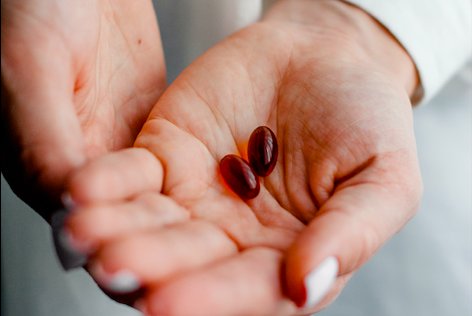
June 06, 2023
 Kateryna Hliznitsova/Unsplash
Kateryna Hliznitsova/Unsplash
Older adults who take multivitamins daily may experience less memory loss, according to new research.
Daily multivitamins may aid in slowing memory loss in older adults, according to recent research.
The study, published last month in the American Journal of Clinical Nutrition, stems from a nationwide clinical trial from Brigham and Women’s Hospital (affiliated with Harvard Medical School) and Columbia University. It involved more than 3,500 adults over the age of 60.
Participants were randomly assigned either a daily multivitamin or a placebo over a three-year period, and the subjects were evaluated annually with neuropsychological tests.
At the end of the study, researchers found that the people taking multivitamins showed an estimated 3.1 fewer years of memory loss compared to the control group; or, as the authors of the study put it, the people taking multivitamins showed an improved memory performance "by the equivalent of 3.1 years of age-related memory change."
"Multivitamin supplementation holds promise as a safe and accessible approach to maintaining cognitive health in older age," the authors of the study wrote.
The participants who took the multivitamins also performed significantly better in immediately recalling words.
This is the second recent study in the multi-year COcoa Supplement and Multivitamin Outcomes Study (COSMOS), which researches the effects of multivitamins on cognition and certain health conditions. Last year, another trial conducted by Brigham and Women’s Hospital in collaboration with scientists at Wake Forest University School of Medicine found that daily multivitamin intake slowed cognitive aging by 60%.
“Older adults are very concerned about preserving cognition and memory, so this is a very important finding,” JoAnn Manson, chief of Brigham’s division of preventive medicine and co-leader of the study, told the Washington Post. “They are looking for safe and effective prevention strategies. The fact that two separate studies came to similar conclusions is remarkable.”
The most recent study used a common multivitamin, Centrum Silver, which contains vitamins D, A and B12, thiamine, riboflavin and manganese. Manson told the Post that any "high-quality multivitamin" should produce similar outcomes.
Some experts believe more research is needed, as the majority of participants were white and highly educated, so it's unknown how the multivitamins may affect other groups. The participants also were in good health without cancer, heart disease or a history of stroke.
"Whether or not these observations can be applied to the general public remains to be studied," Dr. Owen Deland, from the Center for Healthy Senior Living at Hackensack University Medical Center and who was not involved in the study, told Fox News.
Multivitamin supplements, which are relatively inexpensive and available over the counter, contain a combination of vitamins and minerals which may differ between companies. In the U.S., 39% of people 60 and older take multivitamins, according to the CDC.
The effects of multivitamins have been researched with regards to other conditions as well. Studies have largely revealed that taking multivitamins has little or no effect on the risk of cancer, heart disease, osteoporosis, lung disorders, psychiatric disorders and death. Multivitamins have been found to slow vision loss from age-related macular degeneration.
It can be difficult for researchers to study whether specific combinations of vitamins and minerals affect health, as manufacturers can change the compositions when and how they see fit. Moreover, people who already have healthier diets and lifestyles are more likely to take multivitamins, so it can be hard for researchers to identify benefits from the supplements alone.
Follow Franki & PhillyVoice on Twitter: @wordsbyfranki
| @thePhillyVoice
Like us on Facebook: PhillyVoice
Have a news tip? Let us know.